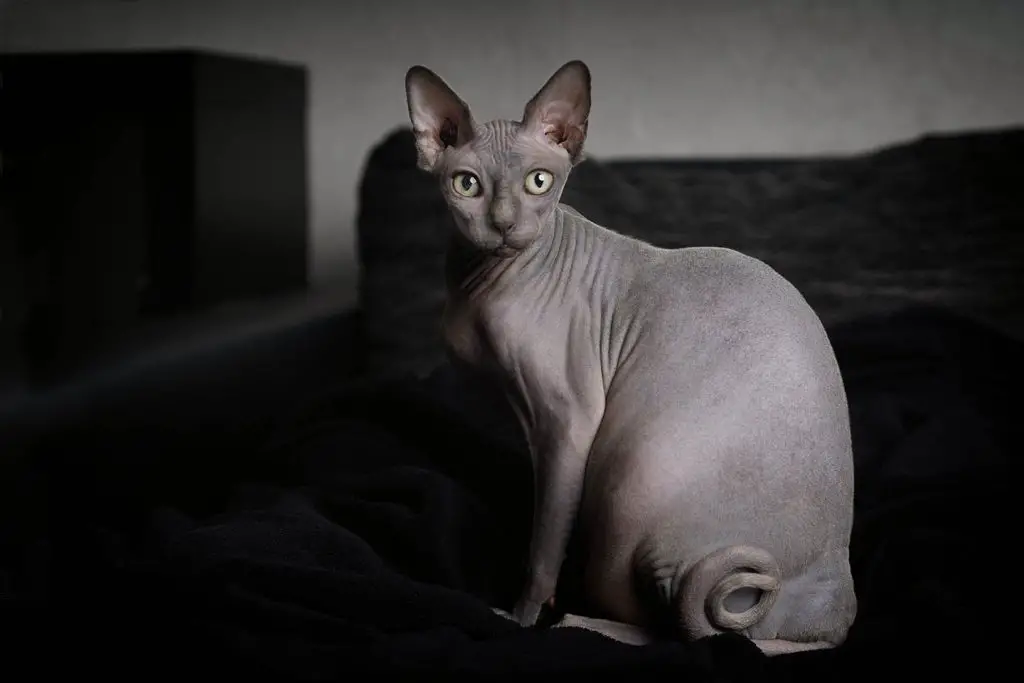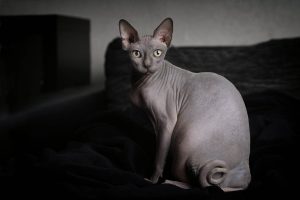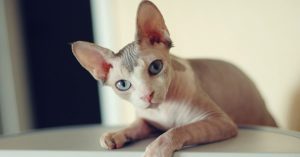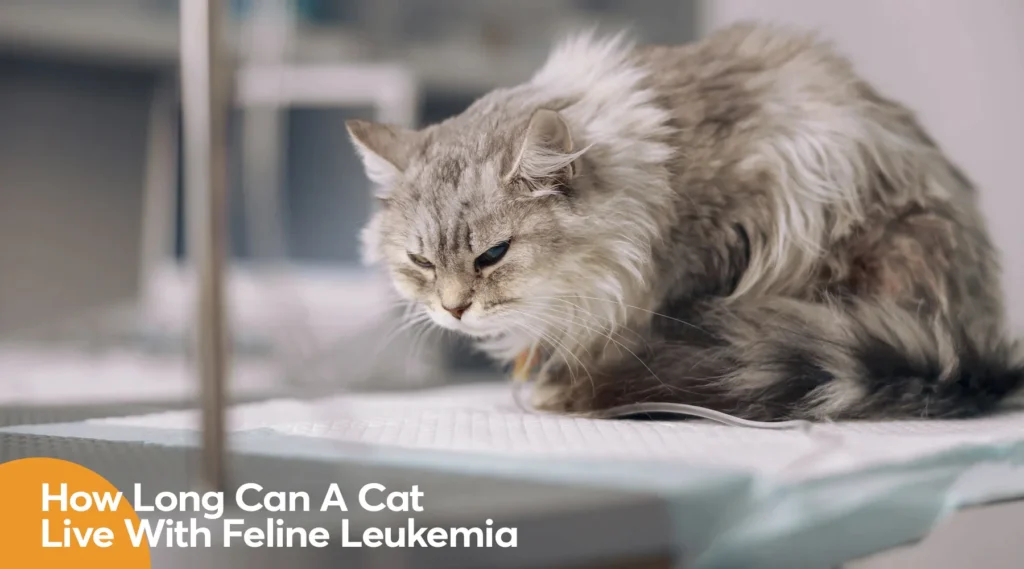How Long Do Sphynx Cats Live?
Sphynx cats, with their hairless appearance and inquisitive personalities, have captured the hearts of cat enthusiasts worldwide. These unique felines often raise questions about their longevity, health, and overall well-being. In this comprehensive article, we will explore how long do Sphynx cats live, examining their average life expectancy, the different stages of their life cycle, the factors that can threaten their lifespan, and how to extend the lifespan of your beloved pet Sphynx cat.
The Average Sphynx Cat Life Cycle
Understanding the lifespan of Sphynx cats is the first step in providing them with the best care possible. The lifespan of Sphynx cats is comparable to that of other domestic cat breeds, with an average range of 9 to 15 years. However, individual cats can vary, and some Sphynx cats have been reported to live well into their late teens or even early twenties.
Sphynx cats, like all feline companions, go through various life stages, each with its unique characteristics:
- Kitten Stage (0-6 Months):
This is the early stage of a Sphynx cat’s life. During this time, they are highly active, playful, and growing rapidly. Proper nutrition, socialization, and veterinary care are essential to ensure a healthy start in life.
- Adolescence (6 Months – 2 Years):
As Sphynx cats approach adulthood, their playful nature continues, and they become more independent. This is also when they reach their full size and physical development.
- Adulthood (2-10 Years):
The majority of a Sphynx cat’s life is spent in the adult stage. They are active, inquisitive, and often at the peak of their physical health. It’s crucial to maintain proper nutrition, regular veterinary care, and mental stimulation to support their well-being during this phase.
- Senior Stage (10+ Years):
In their senior years, Sphynx cats may start to show signs of aging. This can include a decrease in activity, changes in appetite, and potentially the onset of age-related health issues. Senior cats require special attention, including more frequent veterinary check-ups and tailored care to ensure their comfort and longevity.
Factors That Threaten the Sphynx Cat’s Lifespan
Several factors can potentially threaten the lifespan of Sphynx cats. Understanding these factors is essential for cat owners to provide the best care and ensure their Sphynx enjoys a long and healthy life.
- Genetic Factors:
Genetic health issues can significantly affect the lifespan of Sphynx cats. While the breed is generally healthy, Sphynx cats are prone to certain genetic conditions. These may include hypertrophic cardiomyopathy (a heart condition), skin problems, and respiratory issues. Responsible breeding and genetic testing can help reduce the risk of these conditions.
- Inbreeding:
Inbreeding, a practice where closely related cats are bred to maintain specific traits, can increase the risk of genetic health issues. Responsible breeders aim to minimize inbreeding and maintain genetic diversity within the breed to promote longevity.
- Environmental Factors:
The living conditions and environment of a Sphynx cat can play a substantial role in their overall health and longevity. Factors to consider include:
- Indoor vs. Outdoor Living: Sphynx cats are more susceptible to temperature extremes due to their lack of fur. Therefore, it is generally safer for them to live indoors, where they are protected from harsh weather conditions and potential sunburn. Indoor cats are also less exposed to risks like traffic accidents and diseases, which can impact their overall lifespan.
- Clean and Safe Environment: Maintaining a clean and safe living environment is crucial for the well-being of Sphynx cats. Regular cleaning and disinfecting of their living spaces can reduce the risk of infections and diseases. Safety measures should also be in place to prevent accidents and injuries.
- Stress Reduction: Stress can have a significant impact on a cat’s health and longevity. Sphynx cats are known for their social and affectionate nature. They thrive on human interaction and may become stressed or anxious when left alone for extended periods. Providing them with companionship, mental stimulation, and a stress-free environment can contribute to a longer, healthier life.
- Lifestyle-Related Factors:
Several lifestyle-related factors can influence a Sphynx cat’s lifespan. These include:
- Nutrition: Proper nutrition is a key component of a Sphynx cat’s overall health. A balanced diet that meets their dietary requirements is essential. Some Sphynx cats have higher metabolisms and may require more calories than other breeds. Consultation with a veterinarian can help determine the best diet for your individual cat.
- Regular Veterinary Care: Routine veterinary check-ups and vaccinations are essential for monitoring your Sphynx cat’s health and preventing diseases. Early detection of health issues can lead to more effective treatments and, ultimately, a longer life.
- Exercise and Mental Stimulation: Sphynx cats are active and playful, and they require regular exercise and mental stimulation. Providing toys, interactive play, and opportunities for physical activity can help maintain their overall well-being and prevent obesity, which can reduce their lifespan.
- Hydration: Sphynx cats can be more susceptible to dehydration due to their lack of fur, which can make them more prone to sweating. Ensuring they have access to fresh water is essential for their health.
- Dental Care: Dental health is often overlooked but crucial for a cat’s longevity. Regular dental care, such as brushing their teeth or providing dental treats, can prevent oral health issues that may affect their overall well-being.
How To Extend the Lifespan of Your Pet Sphynx Cat
To ensure that your Sphynx cat enjoys a long and healthy life, you can take several proactive steps:
- Choose a Responsible Breeder: Start by selecting a reputable breeder who follows responsible breeding practices. This helps ensure that your Sphynx cat is less likely to inherit genetic health issues.
- Provide an Indoor Living Environment: To protect your Sphynx cat from harsh weather, potential sunburn, and outdoor risks, it’s advisable to keep them indoors. If you decide to allow outdoor access, consider building a secure outdoor enclosure to keep them safe.
- Maintain Proper Nutrition: Consult with a veterinarian to determine the best diet for your Sphynx cat. Ensure that their dietary needs are met, and be mindful of portion control to prevent obesity.
- Schedule Regular Veterinary Check-Ups: Regular veterinary check-ups are crucial for monitoring your cat’s health and catching potential issues early. Your veterinarian can create a vaccination schedule and perform routine health assessments.
- Provide Exercise and Mental Stimulation: Engage your Sphynx cat in regular play and exercise to promote physical health. Interactive toys, puzzle feeders, and climbing structures can help maintain their overall well-being and mental stimulation.
- Ensure Social Interaction: Sphynx cats are known for their affectionate and social nature. They require human companionship. Spending quality time with your Sphynx cat, offering cuddles, play, and attention, can help fulfill their social needs.
- Grooming and Skin Care: Despite their lack of fur, Sphynx cats require some grooming and skin care. Regular bathing is necessary to remove excess oils that can accumulate on their skin. Be sure to use a cat-friendly shampoo and follow proper bathing procedures. Additionally, provide protection from sunburn by keeping them out of direct sunlight or using cat-safe sunscreen.
- Dental Care: Oral health is crucial. Regularly brush your Sphynx cat’s teeth, offer dental treats, and schedule dental cleanings with your veterinarian as needed.






Thanks for sharing. I read many of your blog posts, cool, your blog is very good.
Can you be more specific about the content of your article? After reading it, I still have some doubts. Hope you can help me.
Hi Vytvorení, Sure we will add more information. Please feel free to share your doubts (: